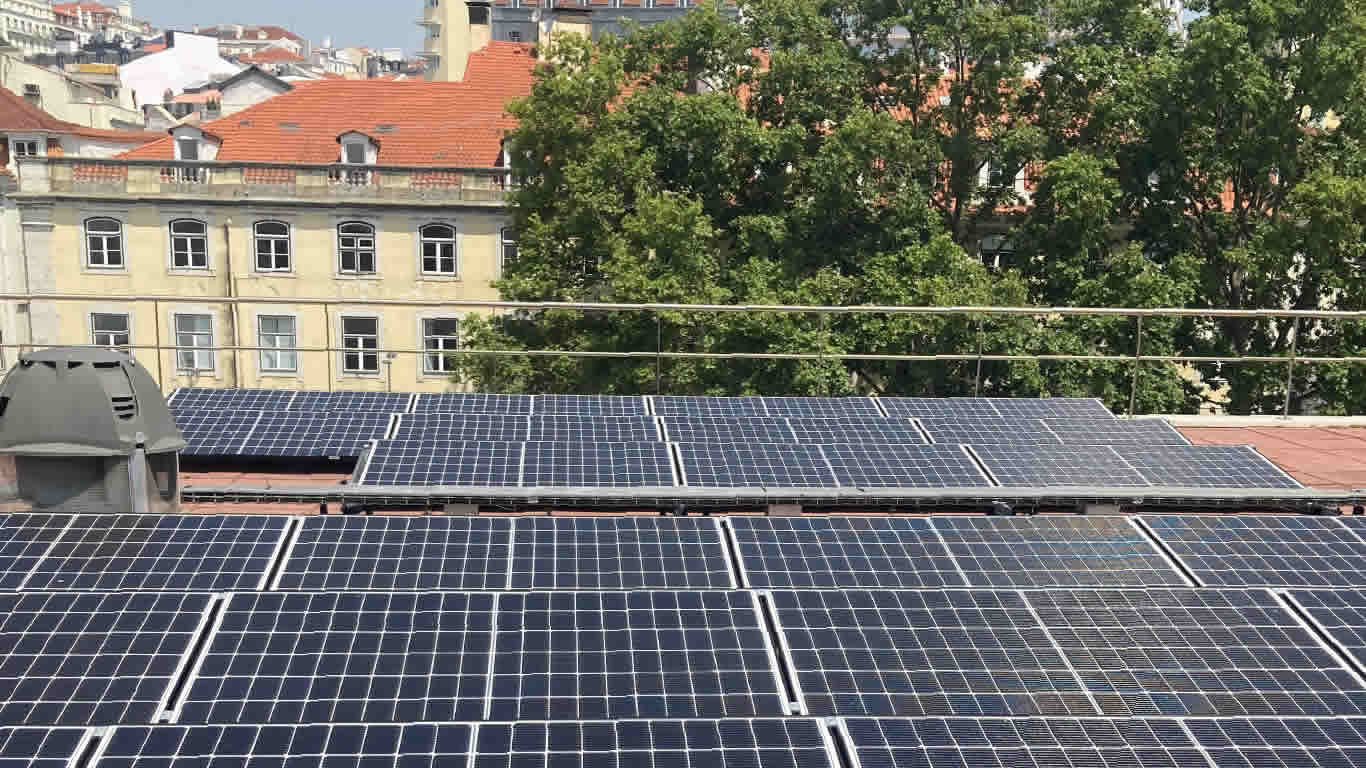
We are committed to sustainability at EMSA. It’s a pillar of our 5-year strategy, and it’s a mission and a mandate for us as an EU Agency. Through our daily actions, individually and collectively, we aim to monitor, track, and constantly reduce our environmental footprint, and embed good environmental practices into all our corporate and individual actions, large and small.
At EMSA, we aim to be stewards of our planet; we care for our environment for ourselves and for our children. We commit to ambitious sustainability targets which we constantly revise and augment to ensure we adhere to the best environmental practice possible.
Our work in numbers
We’ve taken measures to reduce our consumption of energy and water resources at our headquarters in Lisbon for years now, and we switch to 100% green energy (energy from renewable sources) for all our needs in EMSA’s premises, whenever it is available. We also generate our own electricity on-site via solar panels. We reduce the number of missions and their emissions and offset EMSA’s travel CO2 by the end of each year.
![]()
 Our policies in action: single-use plastics
Our policies in action: single-use plastics
As a maritime Agency, we know the damage that marine litter can cause. Too many discarded plastic items still clog our oceans and seas. So, single-use plastics have been completely eliminated from our stationery catalogue, our cafeteria, and around our premises since 2020, and we’ve distributed recycled glass bottles to our colleagues and visitors to our premises for drinking water during the day.
We’re in this together
Key to the success of our environmental goals is the participation of all our staff, who are both ambassadors and facilitators of our green ambitions. On their very first day with us, new employees get an overview of EMSA’s greening policy.
We have established a network of “greeners” in each unit to ensure the application of our environmental standards, and to serve as focal points for new ideas and initiatives that can help us continually improve.
We actively assist our staff to make more environmentally respectful choices. We’re promoting the use of electric vehicles (via free charge points in our garage) and we support commuting to work by bike. We celebrate joint environmental activities, like local beach clean-ups, to foster a sense of shared environmental responsibility at EMSA.
EMAS at EMSA
We are registered under the European Eco-Management and Audit Scheme (EMAS), incorporating the environmental management standards of ISO 14001. We have created a dedicated environmental management system that includes all aspects of our work and is integrated into EMSA’s Integrated Quality and Environmental Managment System (IQEMS).
Our Environmental Management System (EMS)
EMSA’s comprehensive Environmental Management System started with an environmental review of all its activities as the base layer for future action. Responding to its results and analysis, a comprehensive EMS system was created and implemented across EMSA. It has then been merged into EMSA’s integrated quality and environmental management system (IQEMS).
The environmental mangement follows the classic ISO cycle of “plan-do-check-act” for continuous improvement. It involves EMSA’s entire business and is notably applied in: strategic management; environmental and operational management; continuous improvement; management of HR and business travel; equipment and infrastructure management.
Once in place, the EMS policy was widely communicated among EMSA’s staff, and it is constantly reviewed and improved against lessons learned and new developments.
![]()
 Our policies in action: Green Procurement Practice (GPP)
Our policies in action: Green Procurement Practice (GPP)
Externally, our EMSA procurement takes environmental principles into account. Environmental considerations are defined as requirements in tender specifications, in which tenderers must comply with these requirements, and fulfil the requisite criteria, to be awarded with contracts.
See also:
![]() GPP Good Practice - Environment - European Commission (europa.eu)
GPP Good Practice - Environment - European Commission (europa.eu)
![]() EU criteria - GPP - Environment - European Commission (europa.eu)
EU criteria - GPP - Environment - European Commission (europa.eu)
![]() Buying green handbook - Green Public Procurement - Environment - European Commission (europa.eu)
Buying green handbook - Green Public Procurement - Environment - European Commission (europa.eu)
About EMAS
The European Eco-Management and Audit Scheme (EMAS) is a premium management instrument developed by the European Commission for companies and other organisations to evaluate, report, and improve their environmental performance.
Organisations implement an Environmental Management System (EMS): they set up procedures to assess and improve their environmental performance. If they follow the demanding guidelines of the EMAS regulation, they can be EMAS-registered.





